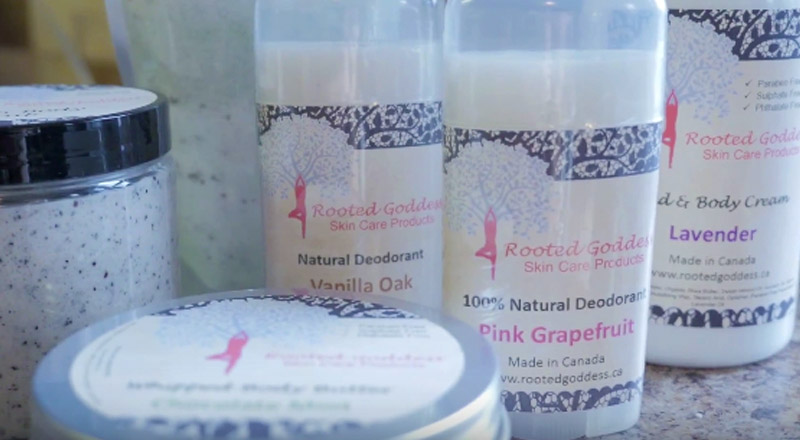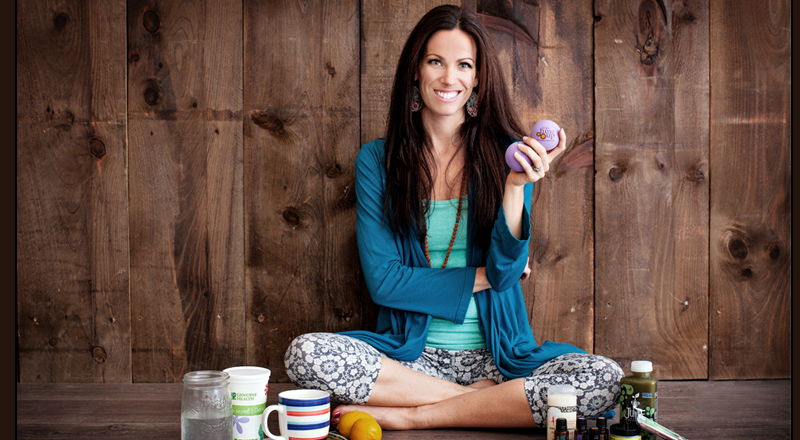Simplicity Saturday – Singing the Virtues of Natural Skin Care

Part of the reason I was drawn to becoming a Holistic Nutritionist versus a conventional nutritionist or dietitian, is that ‘holistic’ refers to treating the person as a whole. This includes not only dietary concerns but also what we treat our bodies with mentally, emotionally, environmentally and topically.
As a society we are huge consumers of skin and body care products and while most of us are drawn to certain products by fancy advertising, celebrity spokes models, the way a product smells and what it costs; we don’t take into consideration that our skin is our largest organ and most porous (ready to absorb).
Using unhealthy and toxic skin and body care products can greatly effect not only the quality of your skin but also contribute to allergies, respiratory issues, certain cancers and hormone imbalances as well as interfering with our natural immunity.
Conventional soaps, even those that are glycerin based, can dry your skin. Instead look for handmade soaps, which are usually made without harmful or potentially harmful ingredients. But just because a soap product deems itself natural or organic doesn’t mean that it’s pure or better than the one next to it on the shelf. The word “organic” can mean that only some of the ingredients are organic. It doesn’t necessarily mean that the ingredients are good for you, so be sure to read your labels and ingredients carefully.
Look for ingredients like coconut oil, olive, almond, jojoba, Shea or coconut oil, which replenish and moisturize the skin. Botanical-based ingredients are better than synthetic, and essential oils provide the best natural, plant-based fragrances. Ground ingredients such as almond, rice, peach pit and coffee make great exfoliating agents to help keep your complexion clear.
Search out vegan soaps as they are cruelty-free and made without animal products (such as lard, and beef tallow). If the ingredients on the list include long words that you can’t pronounce, the soap probably isn’t natural. As for facial and body soap, many natural soaps can be used for both, just be sure to read the suggested use before trying.
My all-time favourite, which I use for everything – cooking, skin care & hair care – is COCONUT OIL! A little bit goes a long way.
Bottom line…if you wouldn’t eat it don’t put it on your body!
Soap Ingredients to Avoid:
- Aluminum – may be linked to cancer
- Formaldehyde – linked to irritation of the skin, eyes, and lungs
- Butyl, methyl, ethyl, and propyl parabens – linked to developmental and reproductive toxicity and certain cancers
- Petroleum products such as Vaseline or mineral oil – congestive to the skin and environmentally damaging
- Phthalates – known endocrine (hormone) disruptors
- Propylene glycol (also used as anti-freeze)
- Synthetic colors labeled as FD&C or D&C
- Synthetic fragrances
- Toluene – linked to developmental and reproductive toxicity
- Triclosan – antibacterial agent known to interfere with natural immunity
Some great places to find fabulous soaps are Natures Emporium, Ambrosia and Goodness Me. A great homegrown company for soaps & other body products is Rooted Goddess…amazing and pure stuff! Also your local Bulk Barn carries some pretty great natural soaps (i.e Soap Works) for the body, shaving, hair, laundry, stain removal etc.
So get shopping and start lathering up 🙂
Want to learn more about your body, your digestion, your health and natural skin care? Consider joining my six-week course The Simplicity Project Online. Round 2 of this course is launching April 12th. There are only 15 spots left to receive our incredible bonuses, so act fast, as our early-bird deadline ENDS Sunday at Midnight EST.

